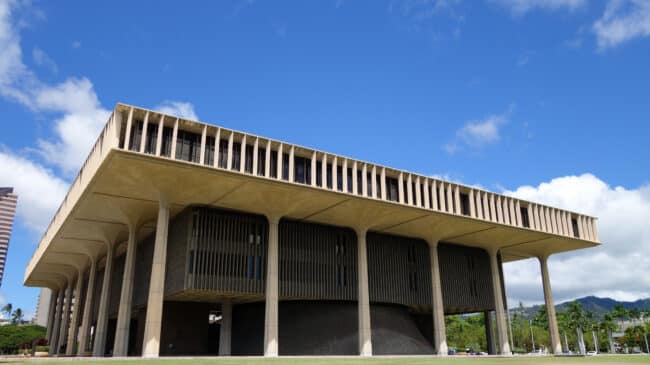Introduction
Hawaii may be poised to become the 25th state to legalize the recreational use of cannabis for adults aged 21 and over. Nearly 90 percent of Hawaii residents supported full legalization of cannabis for adult use in a January 2023 poll conducted by the Hawaii Cannabis Industry Association. Gov. Josh Green has said he would sign a legalization bill if one is delivered to his desk—marking a significant departure from former Gov. Dave Ige, who left office in 2023.
During the 2023 legislative session, lawmakers considered proposals to legalize adult-use cannabis. One of these bills was passed by the state Senate but was not heard in the state House of Representatives.
Between the conclusion of the 2023 legislative session and the convening of the 2024 session, Attorney General Anne Lopez met with key lawmakers to develop proposed language for a legalization bill that could gain the support of the administration and the legislature. This working group produced a 315-page draft bill, introduced in each chamber of the legislature as House Bill 2600 and Senate Bill 3335, respectively. Despite having played a key role in drafting the legislation, however, the attorney general’s office testified in early hearings that it “does not support the legalization of adult-use cannabis,” although the current legislation is a “good faith effort toward protecting the public welfare and is an improvement on previous bills that have been heard by the legislature.”
Reason Foundation has offered recommendations for improvement to successive cannabis legalization proposals in Hawaii. Several of these recommendations were adopted by Senate committees during the 2023 legislative session. Reason Foundation has also reviewed the provisions of Senate Bill 3335, as amended, and submitted recommendations for improvement.
This brief goes beyond those recommendations and provides key background on the Hawaiian marijuana market and considerations for market structure and tax policy. Cannabis consumers are price-sensitive and have many options for purchasing cannabis. Prices and availability within the licensed cannabis industry can strongly influence the decisions of both producers and consumers to either participate in this industry or engage in illicit cannabis activity. In California, high taxes and a lack of legal sellers resulted in roughly two-thirds of cannabis demand being satisfied by the illicit market six years after legalization. The prevalence of illicit sales also negatively affects state tax collections, as only a minority of cannabis transactions are legal and subject to taxation. California has recently begun to take corrective action to lower the tax-induced price disparity between licensed and illicit goods, but Hawaiian lawmakers can circumvent the rise of large illicit markets with an appropriate market design.
Full policy brief: Getting Cannabis Legalization Right in Hawaii


